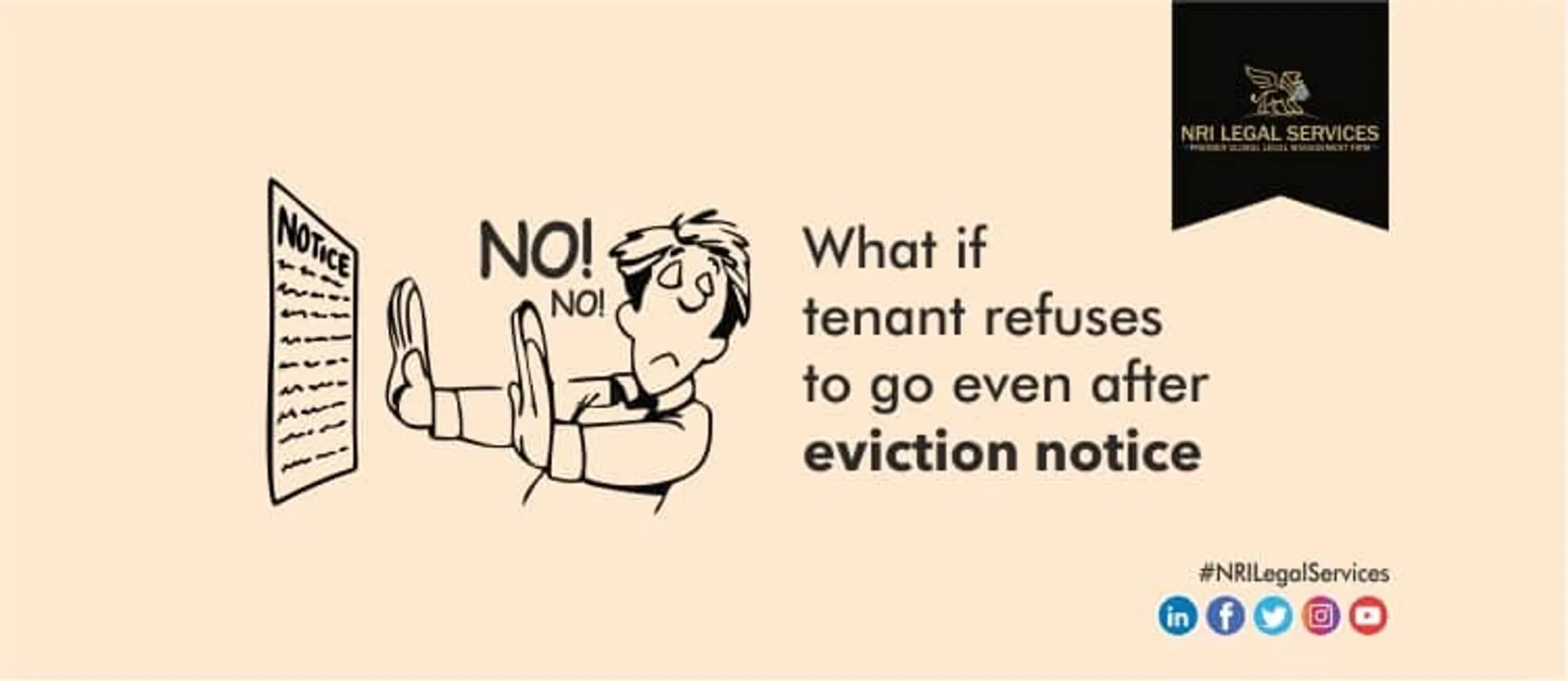There has always been a huge amount of skepticism around the landlord-tenant equation in our country. Legally, the landlord-tenant relationship is governed by Rent laws which differ from State to State.
In case of any problem, the law permits eviction of the tenant on specific grounds-illegal measures to evict the tenant should be avoided.
In reality, it is challenging to deal with a tenant who refuses to leave even after being served an eviction notice.
The landlord may opt for having a conversation with the tenant. It helps to understand what is preventing him from leaving the premises. It is always better to have a word and work out a solution.
Read more: Investment in Indian Property – As an NRI investor know your facts
Table of Contents
Eviction Notice:
If dialogue does not help, a legal notice is sent. Sending an eviction notice is the first step to initiate the process of ejectment. It is a legal notice vide which the landlord informs the tenant the reasons for seeking his removal from the rented accommodation.
A notice period of a reasonable number of days is given to vacate the premises.
The requirement of sending a notice to the tenant depends upon the applicable rent laws. A landlord must be conversant with the rule and regulations of the tenancy as prevalent in the area.
Once the notice is served, the tenant may do what the landlord demands.
Read more: The necessity of Legal Due Diligence in India
What if tenant refuses to go even after eviction notice?
Legal battles are often time consuming and expensive. However, sometimes there is no option left.
If the eviction notice is served, the tenant may refuse to leave. The landlord then files a suit in the court for ejectment of the tenant. It is advised to take help of professionals/law firms to draft and file the petition. A lawsuit is filed in the appropriate court within whose jurisdiction falls the rented property.
There are various grounds available to a landlord for evicting the tenant, like:
- Violation of terms of the agreement by the tenant
- Personal Necessity of the landlord – the property is needed for personal use
- Non-payment of rent
- Premises has become unsafe for human habitation and needs repair
- Property is needed for renovation or alteration
The petition is filed after expiry of the said notice period, stating:
- The terms of the rent agreement/lease deed between the tenant and the landlord
- The violation made by the tenant – unauthorized use, subletting, non-payment of rent etc.
- The period of non-payment of rent and the amount due
The landlord has to explain the violation of the lease deed. If there is no rent/lease deed, it becomes difficult for the landlord to make his point.
The copy of the eviction notice served upon the tenant is annexed with the petition.
It is pertinent to mention here that sometimes the landlord forgoes pending rent in case of eviction suits as he is more interested in getting back the possession of the property.
Read more: Selling a Property through a General Power of Attorney – Is it even valid?
Hearing in court:
The court fixes a date for the hearing. The parties are heard, and the order is pronounced.
If the landlord wins the arguments, the court orders the tenant to hand over the possession of the property to him. The court grants time to the tenant to vacate the property.
If the tenant still fails to do so, the judicial order gets executed by filing an execution petition. The court appoints a Court Officer for removing the tenant. The Police may also intervene in case of recalcitrant tenants.
Read more: How to save title of your property from illegal occupants?

